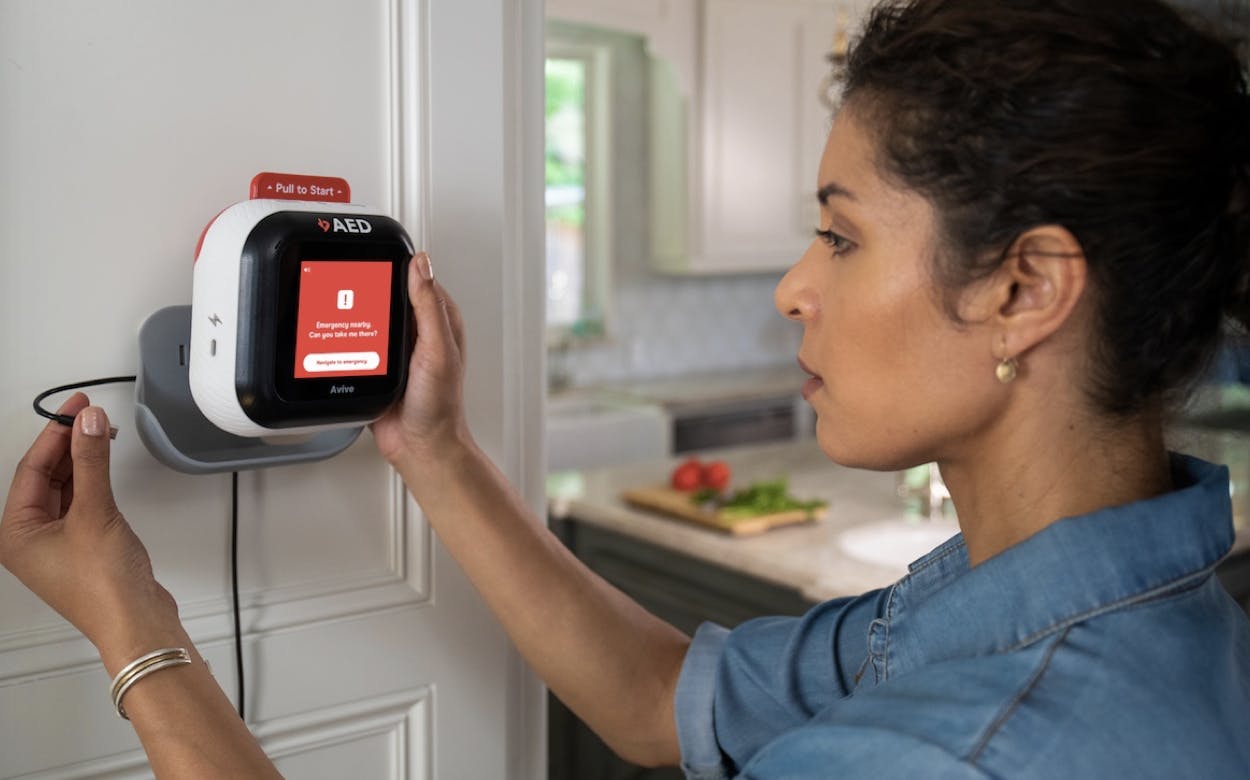Avive connects defibrillators to make sudden cardiac attacks less deadly
Avive Solutions builds connected defibrillators and has just raised $22 million in a Series A from big-name investors.

$22 million for a defibrillator without FDA approval?
Defibrillators have not fundamentally changed in recent years. Sure, they can keep getting cheaper, simpler, and more durable. But they work, as a look at the numbers proves. Without a defibrillator, only 5% of sudden cardiac patients survive. With the use of a defibrillator, the survival rate is as high as 70%.
So the question is why investors are betting that Avive can disrupt this industry. The answer: Avive doesn't want to build a better defibrillator, but one that gets to the person who needs it faster. In a sudden cardiac attack, literally every second counts. The survival rate decreases by 7-10% for every minute the patient has to wait for defibrillation.
So the biggest problem is that bystanders of a sudden cardiac attack who could help don't know where to find a nearby defibrillator, and people next to a defibrillator, don't know that they could probably save lives a few streets away.
A platform of defibrillators
Avive solves this problem by networking their defibrillators and thinking like a platform company rather than a hardware-driven medical technology company.
Avive is building a software solution that allows emergency centers such as 911/112 agencies to immediately notify all Avive defibrillators in the vicinity of an incoming emergency call. An alarm will then ring and direct the person who finds it to the emergency scene on a display. Here is a video from Avive explaining the approach.
What can we learn from it?
- Avive is the poster child of asymmetric competition. The startup does not build the better (cheaper, simpler, lighter, more robust) defibrillator, but addresses a completely different problem: that of sudden cardiac attacks—the time to defibrillation.
- Avive shows that connectivity can help to build platforms in hardware markets. Avive's funding is another signal of the megatrend toward decentralized healthcare. Increasingly, healthcare is being delivered outside of doctors' offices and hospitals.
- And finally, it shows that startups are not only building wellness apps, but also creating innovations that really have the potential to save lives.